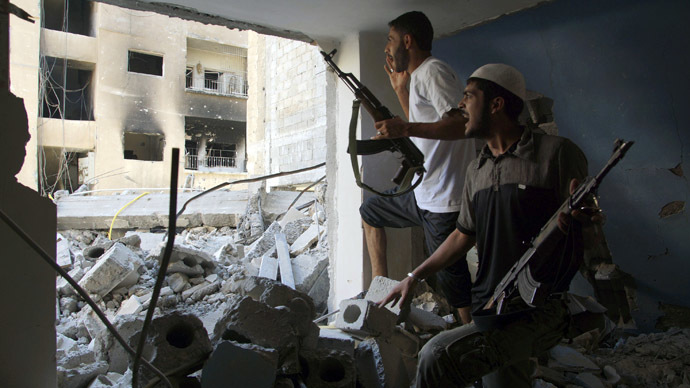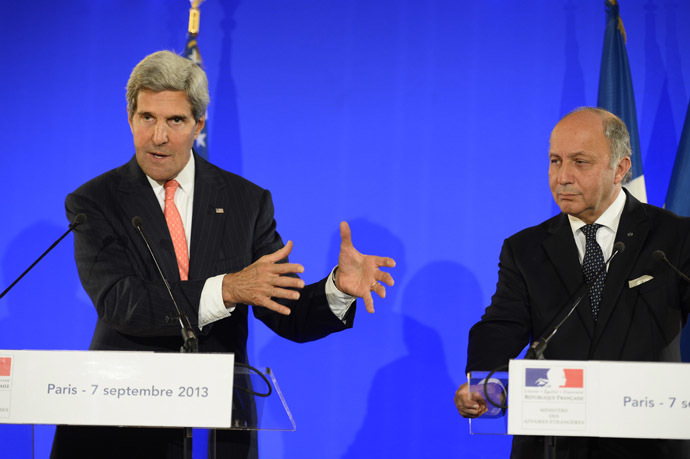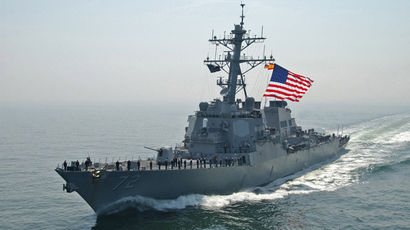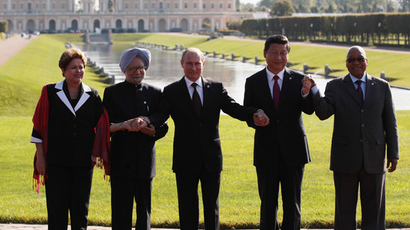EU to US: Assad guilty of Syria gas attack, but no military backing before UN report

The European Union says the Syrian government was the likely perpetrator of the Damascus chemical attack on August 21, but that it will not be rushed into any military action before an official UN report is released.
"Information from a wide variety of sources confirms the existence of such an attack and seems to indicate strong evidence that the Syrian regime is responsible for this attack," EU foreign policy chief Catherine Ashton said in a statement following a meeting between European foreign ministers and US Secretary of State John Kerry in the Lithuanian capital Vilnius on Saturday.
"In the face of this cynical use of chemical weapons, the international community cannot remain idle. A clear and strong response is crucial to make clear that such crimes are unacceptable and that there will be no impunity," Ashton said.
The United States says that Syria’s official forces unleashed a
gas attack on a Damascus suburb last month, killing over 1,400
civilians. The White House, which previously designated chemical
warfare as a “red line,” is calling for “limited”
action against the Assad regime – likely a series of air strikes.
The European Union nonetheless urged the United States to respect
“the UN process.” A United Nations expert team toured the
site of the alleged attack in its aftermath. French President
Francois Hollande has said that the preliminary results of the
report will be presented by the end of next week. The inquest is
likely to identify the substance of the attack – suspected to be
sarin nerve gas - and its scale, but may not say at whose behest
it was executed.
Kerry, who traveled to Vilnius specifically to garner European
support, said he was “grateful” for “a strong statement
about the need for accountability” from the EU’s 28 members.
He also stated that Barack Obama has not himself decided whether
it is necessary to wait until the UN report before taking action,
though in any case it is likely its contents will be revealed
before Congress has a chance to vote on the Syria intervention.
Opinion on the effectiveness of a potential strike runs a wide
gamut across Europe.

Over the past fortnight,
France and the UK have led calls for military response. Italy and
Spain have assumed a waiting position, while Germany has
proceeded with caution.
On Saturday, Hollande said he will wait for UN expert conclusions
before deciding his next move – news which contrasts with his
previous statements. Meanwhile, Germany became the eleventh G20
member to sign a petition demanding a “strong” response to
the alleged actions of the Assad government.
The European Union also declared that the UN International
Criminal Court (ICC) in The Hague should investigate any Syrian
officials involved in the incident. But the ICC will not act
without unanimous approval from the UN Security Council, and that
is unlikely to be obtained.
Russia and China have repeatedly blocked Western-backed
resolutions in the Security Council throughout the 30-month
conflict.
During the G20 summit in St. Petersburg on Friday, Russian
President Vladimir Putin said that the Syrian rebels - not the
government - were behind the attack. He also said that Russia
would offer military support to the Assad regime in case of a
strike.
Kerry will now travel to Paris and London in an attempt to win
endorsement for US military action from Arab leaders, including
Palestinian President Mahmoud Abbas.
According to UN estimates, at least 100,000 people have been
killed since the uprising against Bashar Assad began in March
2011.














